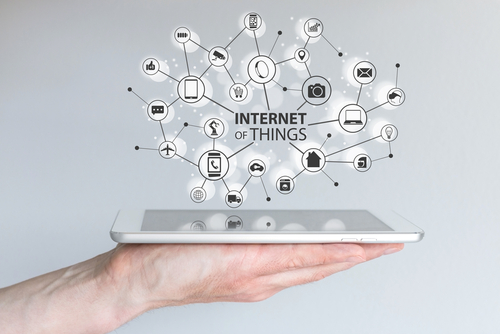“Internet of Things” has been one of the big themes at GITEX this year, with a lot of noise from a lot of different vendors about the prospect of connecting a far wider range of devices – leading, ultimately, to the “Internet of Everything”, writes Eliot Beer, Editorial Consultant, Lynchpin Media.
But some industry figures believe the IoT trend is not particularly relevant to enterprises, being more of interest for the public sector and consumers.
Adrian Pickering, VP for the Middle East and Africa at Juniper, said: “Wi-Fi-enabled light bulbs, and home automation and smart fridges and all that – sure, that market is growing extremely fast. But I do see it as more of a consumer play – I’m sure there are applications in business, but we’ll see how it goes. It’s good for us, I’m not complaining – because it’s going to create more IP traffic over the networks.”
One of the main proponents of IoT has been Cisco, and Rabih Dabboussi, general manager and managing director for the UAE at the networking giant, has been pushing the concept hard at GITEX.
He draws a beguiling vision of the future, of personal avatars doing our bidding, of nanotechnology – and closer to reality, of connected public services offering better emergency healthcare, and connected cars which will cut accident rates. But for more mainstream enterprise applications, detail is lacking – but Dabboussi is adamant IoT will benefit businesses.
“It will definitely revolutionise enterprises. The technology will mature and will improve at a very rapid rate – throughout the history of humanity, there was no industry that has moved at the speed of the tech industry,” he said.
It may start with consumer applications: “In this era of IoT, you’re going to see a lot of other new devices in the consumer space, and that’s typically where things get tested. As they get proven, they move into enterprise and government functionality – and finally they enter critical national infrastructure. They start being deployed in aircraft, in airports, in military operations, in the medical field – the critical functionality of everyday life.”
But for enteprises now, Dabboussi offers little in the way of practical applications. He references a project with an airline to cut maintenance project times by a third, as well as connected taxis in Barcelona, and improved coffee roasting – but when asked to give an example for a mid-sized enterprise, he demurs.
“You give me the example of an enterprise of a thousand people – well, you have to tell me what enterprise. If I go and sit with that CEO, and I understand their business needs, their business requirements, their business challenges, I guarantee you I will walk away with ten use cases, that may cost very little, that will bring a significant impact to their business,” said Dabboussi.
He has harsh words for businesses who say they are struggling to process the data they already have, and feel unable to tackle technological problems: “They need to get some very talented people on their senior executive teams who can take those monstrous challenges they’re facing, break them down into pieces, and really simplify the solution.
“That requires a different breed of people – it’s not the CIOs of the past, it’s not the techies or the geeks. It’s people who can really articulate the value of technology, not for the sake of technology but for the sake of the outcome, who can come up with a solution for technology to help technology. You can’t say ‘I have petabytes of data, and I’m overwhelmed and can only analyse 1%’ – you can actually apply technology to apply 100% of it,” he adds.
Even without examples to hand, Dabboussi insists the IoT revolution will bring benefits to businesses: “Every country, every city, every company, home and individual is becoming digitised – and through that digitisation there will be economic, social and environmental benefits. If you take that to the next levels, we can give you thousands and thousands of examples – from personal use, to SMEs, to large enterprises, and the largest governments in the world.”
While he may well be right, in the here and now, it seems enterprises may be on the side-lines of the Internet of things for some while yet.


